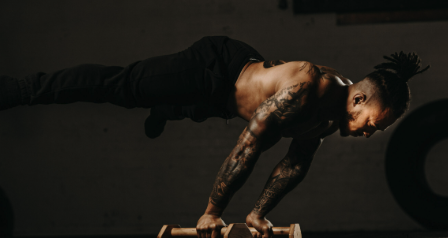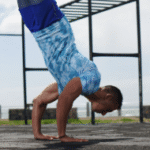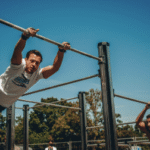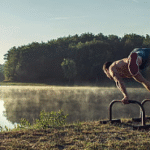How to Find the Best Private Calisthenics Coach Near You (USA Guide)
Okay, let’s break down exactly how to find the *best* private calisthenics coach near you in the USA. Finding just *any* coach is one thing, but finding the *best* one for your specific needs requires a more thorough approach. Consider this your detailed guide as of today, Monday, April 28, 2025.
**Step 1: Define What “Best” Means *for You***
Before you even start searching, get crystal clear on your own needs. “Best” is subjective. Ask yourself:
* **What are my specific goals?** (e.g., “Master a freestanding handstand,” “Achieve 5 muscle-ups,” “Lose 20 lbs using bodyweight training,” “Improve functional strength and mobility,” “Rehab a shoulder injury with bodyweight exercises.”) The more specific, the better.
* **What is my current fitness level?** (Complete beginner, intermediate with some basics, advanced looking to refine skills?)
* **What’s my budget?** Be realistic about what you can sustain per session or per month.
* **What’s my preferred training style?** (Technical focus, high intensity, supportive, demanding?)
* **Where do I prefer to train?** (At home, outdoors, in a specific gym/studio?)
* **What’s my schedule availability?**
Knowing these answers will help you filter coaches effectively later.
**Step 2: Cast a Wide Net – Where to Look for Candidates**
Use multiple channels to identify potential coaches in your area:
* **Targeted Online Searches:** Use Google, DuckDuckGo, Bing, and especially Google Maps. Go beyond generic terms. Use specifics like: “calisthenics coach [Your City/Neighborhood],” “bodyweight strength coach [Your City],” “handstand private lessons near me,” “functional strength trainer [Your City].”
* **Trainer Directories:** Explore platforms designed to connect clients with trainers. Check well-established ones:
* *FitnessTrainer.com*
* *Trainerize.me*
* *Thumbtack*
* *Bark.com*
* *ACE Fitness Pro Finder* (Filter by specialty if possible)
* Note: Some popular *online* training platforms (like Future, Caliber) might occasionally list coaches who also offer local in-person or hybrid training, but their primary focus is often remote.
* **Social Media:**
* *Instagram:* Search local hashtags (e.g., #AustinCalisthenics, #BodyweightAustin, #ATXFitness). Look at coaches’ profiles – their posts often reveal their expertise, style, and client results.
* *Facebook:* Join local fitness, calisthenics, or community groups and ask for genuine recommendations. Search for coaches’ professional pages.
* **Local Facilities:**
* *Specialized Gyms:* Prioritize dedicated calisthenics, gymnastics, parkour, or movement gyms if available in your area.
* *CrossFit Boxes/Functional Fitness Studios:* Inquire if any coaches specialize in bodyweight/gymnastics skills and offer personal training.
* **Word-of-Mouth:** Ask fitness-minded friends, colleagues, or people you see training effectively at local parks or gyms.
**Step 3: Initial Screening – Creating Your Shortlist**
Quickly review the websites, profiles, or listings of potential candidates.
* **Calisthenics Focus:** Do they clearly state a specialization or significant experience in calisthenics relevant to your goals? Eliminate general personal trainers who only list “bodyweight” as an afterthought unless they have strong evidence otherwise.
* **Professionalism:** Does their online presence look professional? Is information clear? Are there obvious red flags?
* **Basic Alignment:** Does their listed location/service area work for you? Do they seem to coach people at your level?
Aim for a shortlist of 3-5 promising candidates.
**Step 4: In-Depth Vetting – Assessing Quality and Relevance**
This is where you dig deeper to find the “best”:
* **Credentials & True Expertise:**
* Look beyond basic PT certifications (NASM, ACE, etc.). While good, they don’t guarantee calisthenics expertise. Ask about specific workshops, certifications (WSWCF, PCC, SFB, although less standardized in the US), or extensive practical experience coaching *and performing* calisthenics skills.
* *Crucially:* Does their expertise align directly with *your specific goals*? A great strength coach might not be the best handstand coach.
* **Proven, Relevant Results:**
* Don’t just rely on testimonials saying “they’re great.” Look for specific evidence: clients achieving goals *similar to yours*, clear before/after transformations (where appropriate), detailed case studies, positive reviews on independent sites (Google, Yelp). Ask the coach directly for examples relevant to you.
* **Content Analysis:** Review their social media feeds, blog posts, or YouTube channel. Does their content demonstrate deep knowledge, safe training practices, and a philosophy that resonates with you? Are they actively engaged in the discipline?
* **Reputation Check:** Do a quick online search for their name or business name to see if any additional reviews or information pop up.
**Step 5: The Consultation – The “Fit” Interview**
Treat the initial consultation (free or paid) as a two-way interview. Use the detailed questions (covered in the previous response) but focus on aspects that differentiate candidates:
* Ask *how* they would specifically approach *your primary goal*.
* Ask *how* they’ve handled clients with *your specific limitations* or at *your specific level*.
* Pay close attention to their communication style – are they clear, patient, and actively listening?
* Assess rapport – do you feel comfortable, respected, and motivated by the interaction?
**Step 6: The Test Drive – Consider a Trial Session**
If you’re serious about a coach and they offer it, investing in a single paid trial session before committing to a package is highly recommended. This gives you the best feel for their actual coaching style, cueing, and session flow.
**Step 7: Making the Informed Choice – Synthesizing All Factors**
Now, weigh everything for your top candidates:
* **Expertise & Proven Results (Relevant to YOU):** Non-negotiable foundation.
* **Coaching Style & Philosophy:** Does it match your learning preferences and values?
* **Communication & Rapport:** Do you connect well and feel understood?
* **Logistics & Budget:** Is it realistically sustainable?
* **Professionalism & Trust:** Do they meet professional standards?
* **Your Gut Feeling:** Who do you intuitively feel is the best partner for your journey?
Don’t automatically default to the cheapest option or the one with the flashiest social media. The “best” coach is the one who provides the optimal blend of relevant expertise, effective communication, compatible style, and logistical convenience *for you*.
**Conclusion:**
Finding the *best* private calisthenics coach near you requires more effort than a simple Google search. It involves defining your needs, diligent research, thorough vetting focused on relevant expertise and results, insightful consultations, and careful consideration of personal fit. By investing time in this process, you significantly increase your chances of finding a coach who will help you safely, effectively, and enjoyably achieve your calisthenics goals.
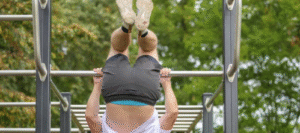
How to Find the Best Private Calisthenics Coach Near You (USA Guide)
Route
Calisthenics Gym Houston Functional Bodyweight Training
Secondary phone: (346) 483-3195
Email: info@calisthenicsclubhouston.com
URL: https://calisthenicsclubhouston.com/
Monday 6:00 AM - 7:00 PM Tuesday 6:00 AM - 7:00 PM Wednesday 6:00 AM - 7:00 PM Thursday 6:00 AM - 7:00 PM Friday 12:00 PM - 6:30 PM Saturday 9:45 AM - 12:00 PM Sunday 3:00 PM - 5:00 PM

